
Kenneth Pobo
There is a high degree of honesty contained with the lines of a poem. Whether the poet speaks of love, hate, nature, destruction, war, or Bush's foreign policy, the honesty rests within the emotion and sentiment the poet feeds in the poem. Just as Ginsberg felt compelled to pen "America" in 1956, the poets of today should feel so compelled to shout like madmen on the rooftops of their local starbucks and US tans about the current state of America. They should be the men and women leading the marches on Washington, and not the ones quietly submitting trite verse about how they hate their jobs. One poet who is willing to sound his "barbaric YAWP" is Kenneth Pobo.
Kenneth Pobo grew up in Illinois. His work can be read online at: FORPOETRY.COM, THREE CANDLES, ADIRONDACK REVIEW, 2RIVER VIEW, and elsewhere. In 1998, Palanquin Press published his chapbook called Cicadas in the Apple Tree, he has gone on to publish several other chapbooks. His most recent book, Introductions, was published by Pearl's Book'em in 2003. Kenneth is currently living in PA and teaches at Widner University. He is also featured in the Spring 2007 issue of Pemmican, where he clearly outlines his view of America.
There is a high degree of honesty contained with the lines of a poem. Whether the poet speaks of love, hate, nature, destruction, war, or Bush's foreign policy, the honesty rests within the emotion and sentiment the poet feeds in the poem. Just as Ginsberg felt compelled to pen "America" in 1956, the poets of today should feel so compelled to shout like madmen on the rooftops of their local starbucks and US tans about the current state of America. They should be the men and women leading the marches on Washington, and not the ones quietly submitting trite verse about how they hate their jobs. One poet who is willing to sound his "barbaric YAWP" is Kenneth Pobo.
Kenneth Pobo grew up in Illinois. His work can be read online at: FORPOETRY.COM, THREE CANDLES, ADIRONDACK REVIEW, 2RIVER VIEW, and elsewhere. In 1998, Palanquin Press published his chapbook called Cicadas in the Apple Tree, he has gone on to publish several other chapbooks. His most recent book, Introductions, was published by Pearl's Book'em in 2003. Kenneth is currently living in PA and teaches at Widner University. He is also featured in the Spring 2007 issue of Pemmican, where he clearly outlines his view of America.
Recently, Kenneth took some time out to talk to us about his work and the poet's place in politics.
Orange Alert (OA): How long have you been writing and how long did you submit your work before you received your first publication?
Kenneth Pobo (KP): I started writing on July 4, 1970. I was 15. I started sending out to (real) little journals at 19. Jean's Journal in New York published my first poem called "Scenesof Cemetery." The "scenesof" indicates I was listening madly to Marc Bolan/T. Rex then (and still do).
OA: Who are some of your biggest literary influences?
KP: There are too many to list. Any poem I like is an "influence." Some that come to mind immediately are the portrait poems of Edwin Arlington Robinson, D.H. Lawrence's Pansies, Anne Sexton's Transformations, Theodore Roethke, especially his greenhouse poems, Frank O'Hara, Tomas Transtromer, Sylvia Plath, Eliot, Ginsberg, David Trinidad, Mutsuo Takahashi, Creeley, Jean Follain, Jean Valentine, Tony Hoagland (recently), Langston Hughes, May Swenson, Zbigniew Herbert. Folks like Emily Dickinson, Walt Whitman, GM Hopkins have influenced my whole life, so they have influenced my poems, too. The Beats. Any poet connected with the T'ang Dynasty.
OA: What is your opinion of the current state of poetry? Is it thriving in an internet era, or is it being watered down by an overabundance of outlets ( i.e. blogs/myspace/lit zines, etc)? Is there an audience for the modern poet?
KP: Every "literary era" has challenges. I love that the Internet has made poetry accessible to many who wouldn't have as much access to it if they had to rely only on Borders and Barnes & Noble. The Internet is the antithesis of corporate book stores. Poets who had a slim chance of being more widely read now can be accessed by a few clicks--from anywhere around the world. Publishing is being redefined. It's unfair to single out the Internet as having many "magazines" which are edited by people without much literary acumen. Yes, those magazines exist--as they exist in the print media, too. I'm glad that canonical literature is being rethought and challenged. There's no need to toss Chaucer out--he's great--but we can have spoken word poets, too. The Internet has widened the possibilities for people of color and out GLBT writers. Many writers are trying to write poems that speak to many issues that some mainstream journals are reticent to touch. We can't know what people will want to read in 50 years or in "eternity"--or even tomorrow. Writers are rethinking what constitutes literary recognition. I believe there is an audience for poetry, a large audience. Sadly, there's an audience for Fox "News" too.
OA: I particularly enjoy your more political poems (American Way, Bush Says, Dinner After the Republican Convention, etc.). I find them refreshing and much needed in modern times. Can you share your thoughts on the poet as political commentator?
KP: As the Mamas & the Papas sang on my alltime favorite song, "12:30," "I can no longer keep my blinds drawn." I think poets have a responsibility to speak truth to power--even if no one or very few listen. I don't want my poems to be little presents I make only for myself, all stuffed with me, me, me. 650,000 people in Iraq have died already. More to come. Children have their faces blown off. And our corporate media hustlerwhores give us the woes of Paris Hilton. In 2004, I made a decision that enhanced my life: I turned off the TV. BYE! No more CBS, NBC, ABC, CNN. If I want the opinions of Bush, I can go elsewhere. I don't need the TV media washing me in vomit and calling it perfume. The exceptions: Keith Olberman and a few seconds of the Weather Channel if a bad storm is coming. Otherwise, the networks stay off. I don't want American Idol in my life. I don't want to hear "news" people refer to my rights as "controversies." Why not define heterosexual rights as "controversies"? As the camera makes sure we see the wedding ring on the anchor's finger. I will never forget when the stupid lie-based Iraq War began. I was on a stationary bike at the gym. They have TV monitors on (always, TV watches us). When they showed the bombing taking place in Bagdhad, all the explosions, the lights in the night sky, I thought the commentators were masturbating to the phrase "shock and awe." There was no sense that we had embarked on a nightmare of enormous grief. I often write poems based on injustices. In the past six and a half years, since two elections were stolen (more times when the media decided not to cover this. Wolf Blitzer, read Greg Palast now, if you can read.) I have written about political and justice issues again and again. Many aren't really poems as much as rants. They feel good when I write them, like I'm getting something off my chest or pulling a tick off of me, but as poems they may be too stated, or they may come across as the poet above the crowd. If it's about the poet, and not the issue, and even more so, language, for me, it works less well. The poems of mine you mentioned liking (thanks, by the way) were written in response to moral decay and militarism--and consumerism. Ginsberg's "America" is still alive and enervating to read now, over 50 years after it was written. I try to do what he does in the poem's last line: "America, I'm putting my queer shoulder to the wheel." There's much work to be done unless a nuclear war starts, which it very well may, and then the sun will do all the work, shining on our collective corpse. For poets, our tools are language, sound--and silence. And one more thing, poetry that involves politics needn't be direct. I have many poems about the garden. They may seem like they're about the garden, like a nice bouquet, but I see them as a challenge to a time where we're growing more and more disconnected from nature (we do this at our peril--global warming). Thoreau saw that a divorce from nature leads to rampant moneythugging and loss of self. So, what may seem on the surface to be apolitical may be deeply political.
OA: Do you ever participate in readings? If so, does the act of reading your poetry to audience ever change the way you feel about a particular poem? How do you select which poems you will read that night?
KP: I love giving readings--and still get butterflies before I read. I don't read the same poems again and again. I like to try out new poems and see how they mix with the others. I like to pull poems out of mothballs and see them in a new context, hear them in a new context. Audience response can really improve a reading. You can just feel it when people are listening closely. Everyone gets on a magic carpet ride of words. We don't know where the journey will lead. Reading poems out loud can also signal needs for revision. I love revision! I never think of my poems as done, including those that are in books. It's funny how a poet never really knows which poems may affect someone at a reading. A poet's own favorites may be met with a chill while poems that the poet may think of as chewing gum can get strong responses. Go figure.
OA: What's next for Ken Pobo?
KP: Oh goodie, a chance to mention my forthcoming book, Glass Garden, due out in 2008 from WordTech Press. I'm a teacher, so after the heaven of summer, school will start again. A busy year, no doubt, coming up. What else is in the works? I want to watch a bunch of films I have but haven't gotten to yet. Rumor has it that more Bergman films are going to be out on DVD. Can't wait. Bette Davis & Joan Crawford are always in style. I've been reading some excellent books (Paul Beatty, The White Boy Shuffle; Donaldson's bio of Edwin Arlington Robinson; and Aidoo's novel Changes) and hope to read more. It's been a good writing summer thus far, and I hope the start of school doesn't turn my writing life into a beetle squished between two fingers. Stan, my partner, and I hope to go away in August. That does mean tearing ourselves away from the garden. I do my radio show, "Obscure Oldies," every Saturday from 6-8pm EST at WDNR.com. It's a highlight of my week.
Bonus Questions:
OA: Coffee? If yes, what is your favorite type of coffee and where is your favorite coffee spot?
KP: I drink coffee every morning. We usually get Chock Full O Nuts. I don't go to coffee spots unless you count our dining room table or my desk.
KP: I drink coffee every morning. We usually get Chock Full O Nuts. I don't go to coffee spots unless you count our dining room table or my desk.
OA: What type of music are you currently listening to and who are some of your favorite artists?
KP: I'm 680 billion years old and my musical tastes reflect this. Who I'm listening to now is pretty much who I was listening to in 1966. It's a long list, topped of course by Tommy James and the Shondells. The Monkees. Nancy Sinatra. Pet Clark. The 4 Tops. Gary Lewis and the Playboys. The Supremes. The 1910 Fruitgum Company. Jackie De Shannon. The Ohio Express. Verdelle Smith. Wilson Pickett. The Sounds of Modification. Buffy Ste. Marie. The Carpenters. Bread (but never "Make It With You" or "If"). Herman's Hermits. The Improper Bostonians. The New Colony Six. The Dave Clark 5. Bobby Hebb. The Mamas and the Papas. Abba. The 4 Seasons. The Flamin' Ember. Zoe Mulford. Pieces of 8. The Third Rail. Robert Knight. Mama Cass. Peter and Gordon. Music Machine. Tremeloes. Paul Revere and the Raiders. The Hollies. The Chesterfield Kings. When People Were Shorter and Lived Near the Water. Donovan. Chad & Jeremy. Peggy Lee. Question Mark & The Mysterians. The Flock (pre 1969). Tommy Overstreet. The Trolls. Michael Buble. The Association. American Breed. Herb Alpert. The Cowsills. The Cryin' Shames. April Stevens & Nino Tempo. The Fireballs. Frankie Valli. Andy Kim. The Archies. Lou (definition of HOT) Christie. Susan Christie. Five Stairsteps. First Edition. Beach Boys. T. Rex. Beatles, especially George but John too. Mark Erik. Irma Thomas. Neil Diamond (pre-1973). Lulu. Bee Gees, especially pre 1975. Sonny James. Jack Blanchard & Misty Morgan. AAAARGH, I'd better stop before they take me away. But... here's my "Top 11" list, my 10 favorite songs: 1) "12:30"--Mamas and Papas; 2) "96 Tears"--? and the Mysterians; 3) "Never My Love"--Association; 4) "Funky Broadway--Wilson Pickett; 5) "San Francisco (Be Sure To Wear Flowers in Your Hair)"--Scott McKenzie; 6) "One Minute Woman"--Bee Gees; 7) "Goodbye To Love"--The Carpenters; 8) "Longings for a Simpler Time"--Peggy Lee; 9) "Run, Run, Run"--Third Rail; 10) "Lonely Drifter"--Pieces of 8; 11) "Crimson & Clover"--Tommy James and the Shondells.
+by+Nick+Volkert).jpg)
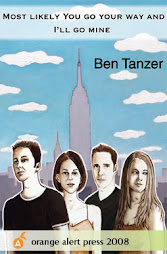

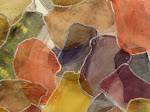









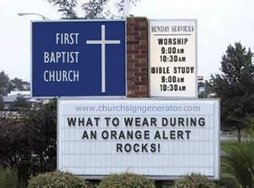


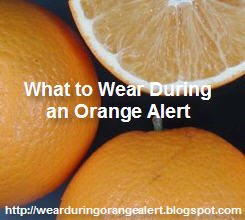


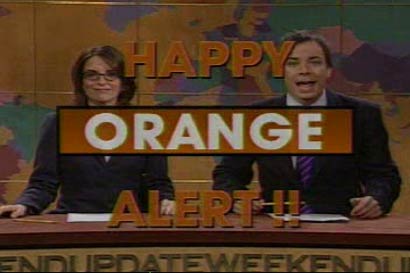

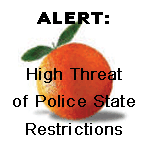
3 comments:
Post a Comment